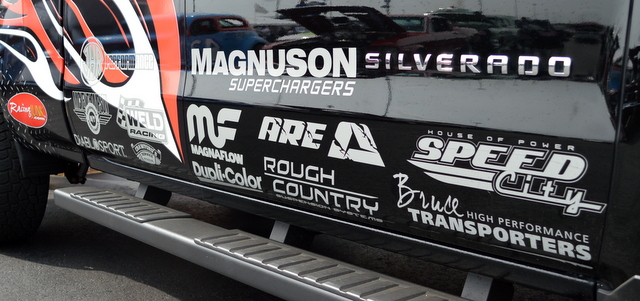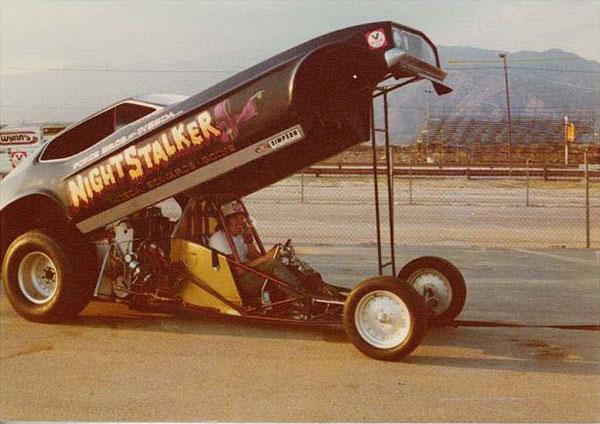
Junkyard Blog: The Truth About Racing Sponsorships

As an automotive journalist, I have the pleasure of meeting and working with many popular manufacturers like Magnuson, Mickey Thompson and Edelbrock, just to name a few. And when my friends learn that I have a relationship with these makers of cool, go-fast products, one of the most frequently asked questions is: “Do you think they will sponsor my race car?”
The short answer is “Yes, they would love to sponsor your race car.” But are you willing and able to return the favor?
Any kind of sponsorship is a symbiotic relationship that demands an equal and delicate dance of mutual benefit. For the race team, the benefits are obvious: free or heavily discounted parts for their car and the weight of a professional sponsor. But what do the manufacturers get in return? It all comes down to one thing: exposure. I usually see a light bulb go on when I explain this to my friends. This is where the more business savvy racers thrive; they understand that as important as it is to win a race, it’s equally important to make sure everyone knows who’s helping you win.

So, how do you get exposure? It’s harder than show up, go fast. First of all, racing is very expensive. Just arriving with a competitive car is a challenge. But consistency – in presence and performance – is a key component to catching a manufacturer’s eye. Sixteen-time NHRA Funny Car Champion John Force raced for fourteen years before earning his first career victory, and even campaigned for a year without major sponsorship support. His first NHRA championship didn’t come for another few years, but he stuck with it and now runs a $24 million race team.
Often, young race teams shoot for the moon by approaching large and well established manufacturers. It usually ends badly because those teams haven’t proven that they can give back yet. Start small. Realistically identifying the type of exposure you can offer, and being humble about what you’re looking to achieve will help you find the right sponsor for your needs. And as a general rule, parts are always easier to come by than cash, so be very specific with your sponsorship requests.
If you currently race on a local or regional level, targeting potential partners who do business in the same region will increase your chances of success because you have the ability to offer exposure in front of a relevant audience.
Basically, seeking a sponsorship is a lot like dating; a large group of talented racers are courting a small handful of manufacturers for sponsorship and a match only happens when both parties like what they see. Just like with dating, there’s no secret or methodology to ensure success. You can only do your best to position yourself to accept a positive outcome, and usually that means that you need to be able to operate a race team without sponsorship, which is easier said than done.
Armed with this basic knowledge, your question of “Will you sponsor me?” can now change to “Please consider sponsoring me because…” This tactic will be more beneficial in the long run; it shows you’ve done your homework and are serious about pursuing a racing career.
——————————————————————————————————————————————
The Junkyard Blog
The Junkyard Blog is written by Andrew Chen, Racing Junk’s resident gearhead and amateur car spotter. In his free time, he likes to accidentally do burnouts while trying to activate launch control. He is not good at left-foot braking.



Leave a Reply